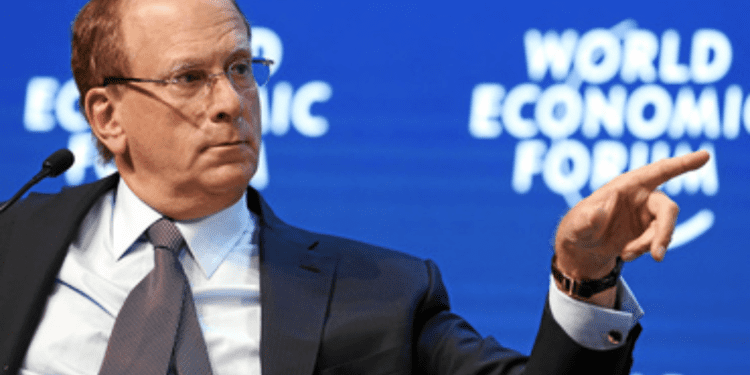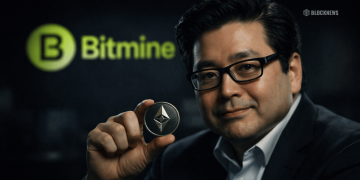BlackRock CEO has joined a growing number of companies that support the tokenization of securities with his new statement, “the next generation for markets is the tokenization of securities.”
BlackRock CEO Larry Fink has said that tokenization of securities is ‘the next generation for markets.’ The news about Fink’s comment is surprising, given his broader cynicism about crypto. Fink made these comments during an event organized by the New York Times DealBook, arguing that tokenization would provide “instantaneous settlement” and reduced fees.”
According to Fink, tokenization brings forth a different way to trade assets such as stocks, bonds, real estate, and other alternative investments, including land, wine, or art. These transfers would be visible to the public on an open ledger. Despite the benefits, Fink assured that developing this technology would not disrupt BlackRock’s business model.
Besides the blockchain promise, Fink also spoke about several current economic issues, including the Russo-Ukrainian conflict, China’s changing role, and the global inflationary pressure that has affected even the most developed economies this year.
In blockchain technology, tokenization refers to when an asset’s digital representation is created on a blockchain, thereby authenticating its transaction and ownership history.
Firms Betting on Tokenization as the Future of Financial Services
Fink’s BlackRock is one of many firms waging on tokenization as the future of financial services. The likes of Flowcarbon have recently received an investment of up to $70 million from high-net-worth investors like a16z, General Catalyst, and Samsung Venture Investment. Flowcarbon is a start-up tokenizing carbon credits led by Adam Neumann, the former founder of WeWork Inc.
In November, the most prominent American bank JPMorgan embraced Polygon for trading tokenized cash deposits in a Singapore-based trial through Onyx Digital Assets, a private blockchain created by JPMorgan. In this endeavor, J.P. Morgan, DBS Bank, and SBI Digital Asset Holdings used the Aave protocol on Polygon, a layer-2 scaling solution, and successfully performed foreign exchange and government bond transactions on the Ethereum network.
In the test transaction, the three banks traded tokenized versions of Singapore government securities bonds in exchange for Japanese government bonds. They also exchanged Japanese Yen (JPY) for Singapore Dollars.
In some of the bank’s whitepapers, JPMorgan has promoted the benefits of tokenization, saying, “Tokenization could potentially enable the delivery of financial services more openly.”
Fink Doubts the Longevity of Most Crypto Firms
Despite his stance on the future of tokenization, BlackRock CEO Larry Fink said he believes that most crypto-related companies “are not going to be around” in the future but remained solid that “blockchain technology will be fundamental.”
The comment draws attention to the collapse of crypto exchange FTX, a catastrophic dethroning of one of the world’s biggest crypto exchanges. On this matter, Fink joined Binance’s CZ, opining, “FTX’s fatal flaw was creating its token.”
“Two big lessons: 1: Never use a token you created as collateral. 2: Don’t borrow if you run a crypto business. Do not use the capital “efficiently.” Have a large reserve. Binance has never used BNB for collateral, and we have never taken on debt.”
Notably, among the first triggers that led to the FTX meltdown was Binance CEO Changpeng Zhao saying that his company would sell off its vast stock of FTX’s FTT token. This was in light of discoveries about heavy cross-pollination between FTX and its corporate sibling Alameda Research, a hedge fund also founded by Sam Bankman-Fried. Later, CZ disclosed that his company never shorted FTT.
“Full disclosure: Binance never shorted FTT. We still have a bag as we stopped selling FTT after SBF called me. Costly call”.
About BlackRock’s exposure to bankrupt FTX, Fink articulated that the value of his company’s investment in the fallen crypto firm was $24 million. However, it was held in a subsidiary fund of funds and not in the ‘core part’ of BlackRock’s business.














